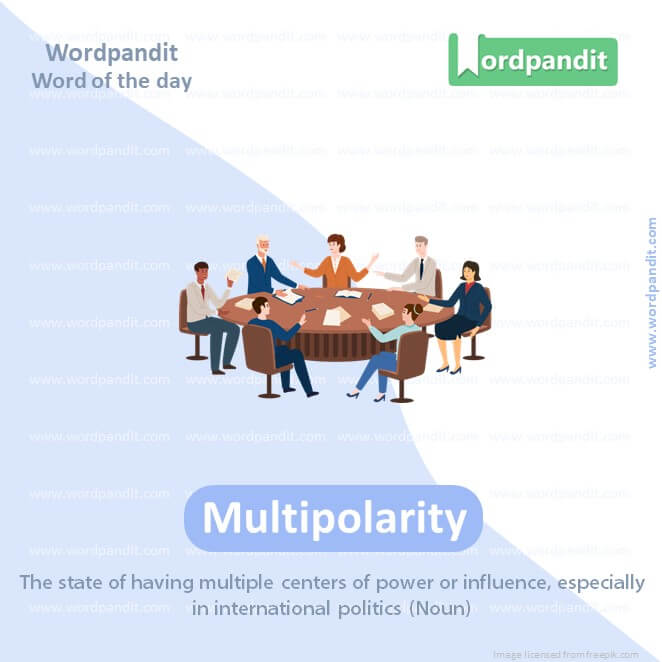Daily Vocabulary Words: List of Daily Used Words
Hi there. Welcome to this special section @ Wordpandit.
Our endeavour here is straightforward: highlighting important daily vocabulary words, you would encounter in The Hindu. This is your repository of commonly used words; essentially, we are posting a list of daily used words. Hence, this has significant practical application as it teaches you words that are commonly used in a leading publication such as The Hindu.
Visit the website daily to learn words from The Hindu.

WORD-1: Complacent
CONTEXT: the Budget and the economic review seem complacent about the aggregate growth and stable external balance, their composition display areas of concern.
SOURCE: The Hindu
EXPLANATORY PARAGRAPH: Imagine you’ve done a really good job on your drawing, and you feel so happy with it that you don’t think you need to try any harder or do anything else. That feeling of being really happy and satisfied with what you’ve done, even if there could be a chance to do something better or learn more, is what “complacent” means.
MEANING: Showing smug or uncritical satisfaction with oneself or one’s achievements (adjective).
PRONUNCIATION: kuhm-PLAY-suhnt
SYNONYMS: Self-satisfied, smug, self-contented, pleased, content, self-congratulatory, self-approving
USAGE EXAMPLES:
1. She became complacent after winning the first prize and stopped practicing.
2. The team’s complacent attitude led to their defeat in the final match.
3. After receiving positive feedback, he grew complacent and stopped improving his work.
4. The company’s complacent approach to innovation resulted in a loss of market share.

WORD-2: Decelerated
CONTEXT: India’s industrial output and investment growth rate has decelerated on a trend basis over the last 5-7 years.
SOURCE: The Hindu
EXPLANATORY PARAGRAPH: Imagine you’re riding your bike down a hill and you start going really fast. If you want to slow down, you press the brakes gently. When the bike starts to move slower, that’s what “decelerated” means—it’s like hitting the brakes on something to slow it down.
MEANING: To reduce the speed of; slow down (verb).
PRONUNCIATION: dee-SELL-uh-ray-tid
SYNONYMS: Slow down, reduce speed, brake, slacken, retard, ease up
USAGE EXAMPLES:
1. The car decelerated as it approached the red light.
2. The runner decelerated as he crossed the finish line.
3. The economy decelerated due to the financial crisis.
4. The train decelerated before arriving at the station.

WORD-3: Constrained
CONTEXT: For the same reason, one is constrained to confine the discussion on the Budget to one question: was the distress in agriculture over the past decade alleviated by policy, or has it been exacerbated?
SOURCE: The Hindu
EXPLANATORY PARAGRAPH: Imagine you want to play outside, but it’s raining hard, so your mom says you have to stay indoors. You feel like you can’t do what you really want because something is stopping you. That feeling of being held back or not being able to move freely is what “constrained” means.
MEANING: Forced to follow a particular course or held back from doing something (adjective).
PRONUNCIATION: kuhn-STRAYND
SYNONYMS: Restricted, limited, confined, restrained, inhibited, forced, compelled
USAGE EXAMPLES:
1. He felt constrained by the rules of the game.
2. The budget constraints limited our options for the project.
3. She was constrained by her responsibilities at home.
4. The artist felt constrained by the small size of the canvas.
WORD-4: Ameliorated
CONTEXT: the stagnation or fall of agricultural prices in the market was not ameliorated by any rise in minimum support prices (MSP). For major foodgrain crops, the MSPs rose by an average of 8-9% per annum between 2003-04 and 2012-13, but only by about 5% between 2013-14 and 2023-24.
SOURCE: The Hindu
EXPLANATORY PARAGRAPH: Imagine you have a small garden and some of the plants are looking sad and not very healthy. You decide to take better care of them by giving them more water, removing weeds, and putting them in the sunshine. After a while, the plants start to look happier and healthier. What you did to make things better for the plants is what “ameliorated” means—it’s making something bad or difficult better.
MEANING: Made better or improved (verb).
PRONUNCIATION: uh-MEEL-yuh-ray-tid
SYNONYMS: Improved, enhanced, bettered, upgraded, refined, enriched, elevated
USAGE EXAMPLES:
1. The new law ameliorated the conditions for workers.
2. They ameliorated the software with the latest update.
3. Efforts were made to ameliorate the living conditions in the slum areas.
4. The change in diet ameliorated his health significantly.
WORD-5: Intervene
CONTEXT: The refusal to adequately raise MSPs affected the government’s ability to intervene effectively in the market to control prices — on the farmers’ side as well as on the retail side.
SOURCE: The Hindu
EXPLANATORY PARAGRAPH: Imagine two of your friends are arguing about which game to play and can’t decide. You step in and suggest a game that both of them like, and they agree. By stepping in and helping them agree, you’ve “intervened.” It’s like being the helpful middle person who solves a problem or makes a situation better.
MEANING: To come between disputing people or groups to help them find a solution; or to occur as a delay or obstacle to something (verb).
PRONUNCIATION: in-tur-VEEN
SYNONYMS: Mediate, intercede, arbitrate, intervene, interfere, intrude, interpose
USAGE EXAMPLES:
1. The teacher intervened in the argument between two students.
2. A sudden storm intervened, delaying the outdoor event.
3. He had to intervene to settle the dispute.
4. The government intervened to stabilize the economy.

WORD-6: Prudence
CONTEXT: it remains to be seen whether voters will be impressed by this or the government’s claim of financial prudence
SOURCE: The Hindu
EXPLANATORY PARAGRAPH: Imagine you have a big jar of cookies. Instead of eating them all at once, you decide to eat just one a day so they last longer. This careful thinking about what’s best for the future is called “prudence.” It’s like being smart and careful with your choices to avoid problems later.
MEANING: The quality of being careful and thoughtful in actions and decisions (noun).
PRONUNCIATION: PROO-dunce
SYNONYMS: Caution, wisdom, judiciousness, discretion, foresight, circumspection, sagacity
USAGE EXAMPLES:
1. She showed prudence by saving her money for emergencies.
2. Prudence is important when making investment decisions.
3. His prudence prevented a potential disaster.
4. The old man offered his prudence to the young entrepreneur.
WORD-7: Miscellaneous
CONTEXT: This has more than made up for a projected fall in miscellaneous capital receipts, consisting of receipts from disinvestment from a budgeted ₹61,000 crore to ₹30,000 crore.
SOURCE: The Hindu
EXPLANATORY PARAGRAPH: Imagine your toy box is filled with different kinds of toys—some cars, some dolls, some puzzles. All these different toys mixed together are called “miscellaneous.” It’s a way to describe a group of things that are all different from each other and don’t all fit into one single category.
MEANING: Made up of a variety of different elements or things (adjective).
PRONUNCIATION: mis-uh-LAY-nee-us
SYNONYMS: Mixed, varied, assorted, diverse, sundry, various, different
USAGE EXAMPLES:
1. The drawer was filled with miscellaneous items.
2. She keeps a box of miscellaneous sewing supplies.
3. The quiz covered miscellaneous topics.
4. They sold miscellaneous goods at the flea market.

WORD-8: Multipolarity
CONTEXT: After the Cold War ended, both countries were quick to espouse the virtues of multipolarity.
SOURCE: The Hindu
EXPLANATORY PARAGRAPH: Imagine a room with lots of different power outlets on every wall, allowing you to plug in many things all around the room. In the world of countries and power, “multipolarity” is kind of like that room. It means there are many countries or centers of power, not just one or two, but lots that have their own strength and influence all over the world.
MEANING: The state of having multiple centers of power or influence, especially in international politics (Noun).
PRONUNCIATION: mul-tee-POH-lar-i-tee
SYNONYMS: Polycentrism, decentralization, diversification, plurality, distribution, fragmentation
USAGE EXAMPLES:
1. The end of the Cold War led to a more multipolar world order.
2. Economists discuss the effects of multipolarity on global trade.
3. Multipolarity can lead to more balanced international relations.
4. The rise of emerging economies contributes to multipolarity.
WORD-9: Hyperpuissance
CONTEXT: French discomfort with a unipolar system was clear when French Foreign Minister Hubert Vedrine described USA as a ‘hyperpuissance’ and openly spoke out in favour of multipolarity, forming a natural convergence with India’s ambitions of seeking strategic autonomy.
SOURCE: The Hindu
EXPLANATORY PARAGRAPH: Imagine a superhero who is the strongest and most powerful of all, much more than anyone else. This superhero can do things no one else can, like flying higher, lifting the heaviest things, and running faster than the speed of light. “Hyperpuissance” is a word used to describe a country that is super powerful, just like this superhero, in terms of its influence and strength around the world.
MEANING: A state or condition of overwhelming power or dominance (noun).
PRONUNCIATION: hie-per-POO-iss-ahnss
SYNONYMS: Superpower, dominance, hegemony, supremacy, ascendancy, preeminence
USAGE EXAMPLES:
1. The United States was often referred to as a hyperpuissance after the Cold War.
2. The concept of hyperpuissance is debated in international relations.
3. A hyperpuissance has significant influence on global affairs.
4. The rise and fall of hyperpuissances shape world history.
WORD-10: Preaching
CONTEXT: France and India share a common trait of ‘civilisation exceptionalism’ and pride themselves on their ‘argumentative intellectualism’ but have wisely refrained from preaching to each other.
SOURCE: The Hindu
EXPLANATORY PARAGRAPH: Imagine someone talking in front of a group of people, sharing important stories or lessons about how to be good, like sharing with others or being kind. This person talks in a special way to help everyone understand how to live better and do the right things. This is called “preaching.” It’s like when your teacher tells you stories to teach you lessons about life, but it often happens in places like churches or during special gatherings.
MEANING: The act of delivering a sermon or religious address to an assembled group of people, typically in church (noun). Also, giving earnest advice on moral principles, especially in a tiresomely persistent manner (verb).
PRONUNCIATION: PREE-ching
SYNONYMS: Sermonizing, proselytizing, moralizing, lecturing, evangelizing, expounding, admonishing
USAGE EXAMPLES:
1. Every Sunday, the priest engages in preaching at the local church.
2. Her grandmother was fond of preaching about the virtues of hard work and humility.
3. The community leader took to preaching the importance of unity and peace during the town hall meetings.
4. In his speeches, he often resorts to preaching about the need for environmental stewardship.
Vocabulary Words with Meaning
Penetrating the rich tapestry of language, the essence of ‘vocabulary words with meaning’ is a crucial aspect. It’s these seeds of knowledge that bud into fluent conversations and comprehensive understanding. The knack of grasping ‘vocabulary words with meaning’ is pivotal in language learning, but it demands a nuanced approach and strategy.
Learning ‘vocabulary words with meaning’ isn’t about mechanically memorizing heaps of words. It’s about building connections and creating a profound understanding of these words. A promising approach to assimilate ‘vocabulary words with meaning’ involves utilizing a wide range of resources including literature, films, music, and digital content. This immersion provides a broad context and diverse settings for these words, simplifying their comprehension and use.
When you’re focusing on ‘vocabulary words with meaning’, remember to incorporate memory-enhancing techniques into your learning regimen. Tools like flashcards or recall-based applications can aid significantly in long-term retention of these words. Additionally, mnemonic strategies, associating words with distinctive images or stories enhance memory recall and understanding.
The journey of mastering ‘vocabulary words with meaning’ also benefits greatly from practice and application. Engage in conversations using the language, express your thoughts in writing, and try to incorporate newly learned words into your routine. This not only enhances your familiarity with the words but also aids in an intimate understanding of their connotations and denotations.
To sum up, learning ‘vocabulary words with meaning’ is akin to assembling a jigsaw puzzle: it requires patience, strategy, and persistence. But the picture that finally emerges is a beautiful tapestry of language – vivid, articulate, and expressive. So, set your sails toward the voyage of ‘vocabulary words with meaning’, and discover the joy of speaking and understanding a language with finesse.











